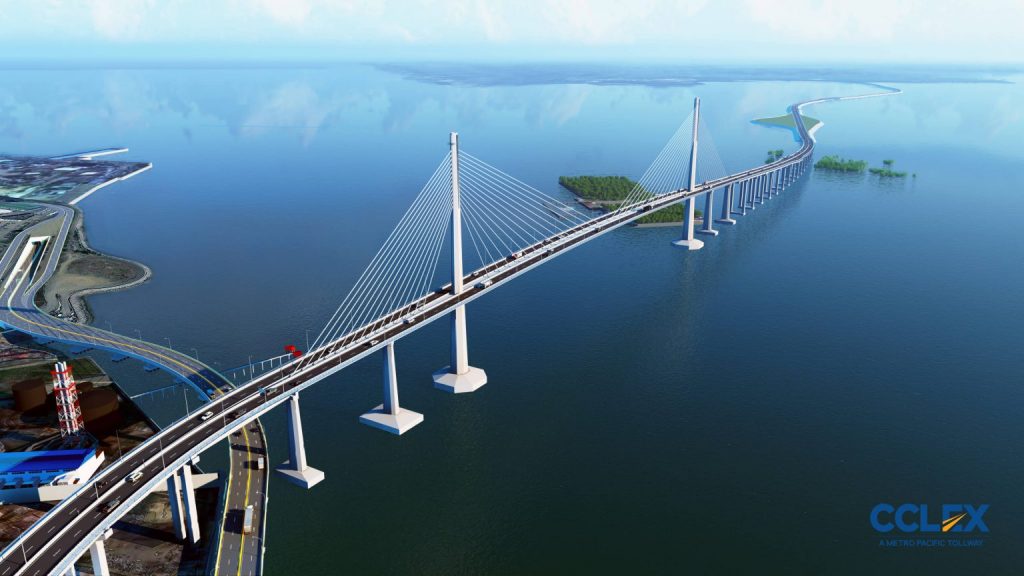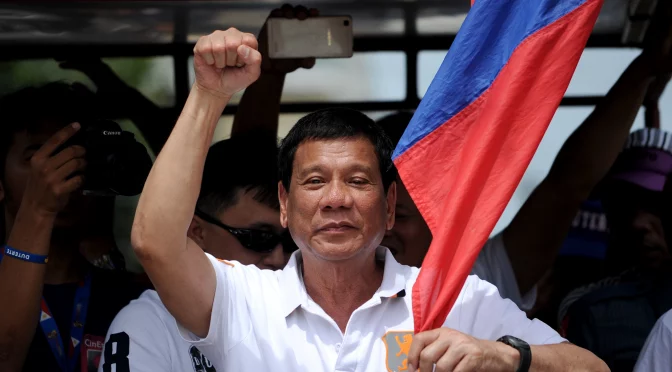PRESIDENT Duterte’s presidency has been an amazing one, which has changed the course of Philippine history. His breakthroughs though can still be reversed if incoming president Ferdinand “Bongbong” Marcos Jr. slows down his predecessor’s momentum, or even just moderates it.
Already, I’ve heard of some calling the new president, “A kinder, gentler Duterte.” If BBM indeed becomes that, he would be upending Duterte’s huge achievements in building what political scientists call a “strong republic.”
This is a nation-state independent of political and economic elites and with efficient, law-based and robust institutions. Without a strong republic, there can never be peace and prosperity in a nation: that is the incontestable lesson of global history. One cannot claim that with regard to democracy: many nations, especially in Asia — China being emblematic of this — have become developed without this cumbersome system.
First
First, Duterte has all but routed the communist insurgency. He is the first president to undertake an all-out drive to end this scourge after 40 years, since Marcos in the early 1970s.
Except for Duterte, all the five presidents immediately preceding him shirked in fighting the communists either because they were plain naïve (as Corazon “Cory” Aquino was) or were political opportunists that they couldn’t risk losing the support of the Left and its many allies.
Cory even strengthened the communists, releasing, as soon as she grabbed power, its top leader and tactician par excellence, Jose Ma. Sison, whom Marcos captured and arrested in 1977. Cory even romanticized the communists as freedom fighters and undertook “peace talks” with them, which was nothing but the vast “democratic space” they used to expand their ranks. Cory got the Constitutional Commission she commanded to create the so-called party-list system, which the communists expertly maneuvered both to become major participants in Congress and to raise funds for their New People’s Army.
Never before has there been a multi-agency “National Task Force to End Local Communist Conflict” that has fought the communists in all fields — from propaganda to economic development of communities organizing the insurgents’ victims to the battlefield.
I respect very much BBM’s designated national security adviser Clarita Carlos, and I was witness to how the Left academics tried to isolate her at UP for not toeing the communist line. But I am worried she’s diluting her mandated focus on “national security” to include food, health and other “securities.” Former president Fidel Ramos’ national security adviser Jose Almonte in fact did that — and even included “Ramos'” security, i.e., remaining in power after six years. He had so many things on his plate, except the most important. The communist insurgency surged during his time; China occupied and built its first structures on Mischief Reef in 1994.
Carlos should forget an academic discourse on “national security” but stick to its strict usage: the State’s security, its survival from its principal enemy — the communist insurgency, the last remaining Red rebellion in Asia and Africa.
Second
Second, Duterte has launched an all-out attack not just against the Left but also the Right. Duterte has put in the nation’s agenda and in people’s consciousness the need for the country to fight the Right, i.e., the oligarchs who have used the state to advance their own selfish interests. The Lopez clan, the maker of presidents that has been since independence emblematic of the Philippine oligarchy, has been overpowered, now sinking in billions of pesos in unpaid debt. Ask any politician, media man or observer of Philippine society, this was outrightly inconceivable before Duterte.
However, it is still a much-unfinished project to vanquish the oligarchs: after all, they have been, precisely, oligarchs because their tentacles reach far and wide.
Duterte’s biggest sin of omission is this. He is aware of one of the most powerful oligarchic conglomerates in the country, the Indonesian-owned First Pacific group. Yet he seems to have shirked away — for reasons I do not understand — from even naming it. In his State of the Nation address in 2021, he only vaguely referred to it as “a cartel of Malaysia and Indonesia, and they form part of that mother corporation. It’s being controlled up by the [inaudible].” The Indonesiano-owned conglomerate has grown vastly richer, and more powerful during his term, siphoning billions of dollars from its monopoly Meralco and the largest telecom firm PLDT-Smart.
Third
Third, Duterte has tamed an irresponsible and mercenary media, from the once-mammoth ABS-CBN to the Philippine Daily Inquirer owned by, compared to the Lopezes, a small-time oligarch, to the one run by and funded by Americans, rappler.com. Again, such an attack on these propaganda machines was inconceivable before Duterte. Duterte wasn’t cowed by the US media, which had swallowed hook, line and sinker the lies of the Philippines’ journalistic version of Anna Sorokin, Maria Ressa, who made the totally, absolutely absurd claim she was being threatened with rape 20 times a day by Duterte’s supporters. Stupid American media wept for her.
Duterte has looked away from the media empire of the Indonesian-owned First Pacific group, which is a violation of the constitutional ban on alien involvement in media. I cannot understand why the Duterte administration filed charges against Rappler for having foreign equity, when the Indonesian First Pacific’s media empire is a hundred-fold bigger.
It has become the country’s biggest multimedia outfit owning the Philippine Star, Channel 5, interaksyon.com and dozens of radio stations around the country. Already there are talks for Channel 5 to air the content — including its news programs — of ABS-CBN. That would mean a total resurrection of this oligarch media.
Fourth
Fourth, Duterte, however, has stopped dead in its tracks the campaign of First Pacific (with two other oligarchs) to force China to allow it to extract gas in the Reed Bank. While it was a laudable plan to replace the Malampaya gas field that will be running out in 2024, the Aquino regime adopted the US-backed strategy of demonizing China as a bully in the South China Sea and filing an arbitration suit to pressure China to back down.
That the arbitration ruling was an “overwhelming victory” for the Philippines is the biggest deception of our time, demonstrating the tremendous capacity of oligarch- and US-controlled media to brainwash people. (I have written over two dozen columns to show this, with not a single point I’ve made contested by anyone. A “shortcut” to see that the arbitration was a hoax: even if it ordered — and it didn’t — China to vacate the Spratlys, there is still Vietnam which also claims the entire area.)
Duterte intuitively saw through this colossal pile of BS. If it had been Mar Roxas who won in the 2016 elections, he would have continued his predecessor’s anti-China tack. That would have severely weakened our economy so much (like it or not, China now is the biggest economic engine in our part of the world), there would have been widespread poverty by now — at the time of the pandemic.
Fifth
Fifth, and related to the fourth, Duterte has ended the Philippines’ vassalage to its former colonial master, the US. Just as in ancient times, when vassals of an empire would troop to the emperor to express its vassalage, all Philippine presidents went to Washington, D.C. to meet with the US president. Benigno Aquino 3rd went to the US to meet President Obama barely three months after he assumed the presidency and would go to the US six more times. In 2011 he met with Obama to beg him to militarily intervene in the Scarborough stand-off with China. He was told instead to agree to the Enhanced Defense Cooperation Agreement (EDCA), which will allow the US to use our own camps as their military bases, when they need it.
Cheaper for the Americans of course. From a high-maintenance mistress (permanent US bases) Aquino had turned the country into a when-needed prostitute (Philippine bases to be used when needed).
In his 2021 SONA, Duterte repeated his past declarations that he will never visit the US. The Philippines has achieved independence under Duterte. He has yet to end the EDCA though, which was merely an executive agreement.
Sixth
Another of Duterte’s big breakthroughs of course was his war against illegal drugs, which stopped the country from becoming during the Aquino 3rd regime Southeast Asia’s first narco state. To stop his campaign, the Yellows had savaged Duterte during his entire term claiming this had resulted, as Vice President Leni Robredo, Rappler, the Inquirer and the Star kept on lying, in massive extrajudicial killings. Together with US media, they touted that over “27,000” Filipinos were victims of Duterte’s war against illegal drugs. No one dares quote that fabricated figure now.
The Ateneo (with funds from Columbia University’s School of Journalism, where one Sheila Coronel was the dean of) two years ago, and more recently the UP’s moribund Third World Studies Center, counted the victims of Duterte’s war against illegal drugs. Both could report only around 3,900 deaths, even less than the Philippine Drug Enforcement Agency’s figure of 6,248 persons who died during anti-drug operations since these were started up to end-April 2022.
How many were killed in a similar campaign in Mexico during the presidency of Felipe Calderon from 2006 to 2012? Sixty thousand, with 27,000 “missing.”
Those who have been shrieking to high heavens that the innocent, or even unarmed, drug dealers were summarily executed seem to assume that Duterte and the police simply have this perverted, satanic pleasure in killing the innocent. It is indeed naïve to think that police didn’t kill unarmed drug suspects.
But then for three decades or so, the police have been frustrated by the spectacle of drug dealers being arrested and then released the next day, on bail, with these criminals even grinning at them, and telling them: “I’ll be going after you and your family.” This was the experience of the police in the municipality where I live.
It’s an unfair world indeed: The choice is between one criminal’s life, or even just freedom, to the many lives in a community. Duterte was bold enough to make the choice, and he even says he is willing to go to hell for that.
Seventh

Duterte’s government has demonstrated that with political will and with competent implementers the Philippines can build infrastructure rivaling those of the developed countries in the region.
An expressway from Alabang to Quezon City to Manila leading to the North Expressway? A light rail transit from Quezon City up to Antipolo? In a few years, an underground subway?
C’mon, these were inconceivable just six years ago.
Eighth
And eighth, Duterte has very successfully managed the Covid-19 pandemic in a country of 104 million people living in 17 regions in 100 main islands.
In Worldometers’ statistics on 30 countries with at least 50 million population, the Philippines ranks way below — slot 128, No. 1 being the worst — in terms of deaths per 1 million population with 538, compared, for instance, to the US and Brazil, with 3,109 and 3,111, respectively. In terms of Covid-19 cases, we are ranked 150th, with 32,919 cases per 1 million population, compared to the US (58th) with 265,522 cases per 1 million.
Indeed, there has never been, and I think there will never be a Duterte as Philippine president again.



Agree with everything except the piece on the pandemic. His administration’s response demonstrate that they are singing from the same globalist song sheet. Independent-minded? Not this one. Not impressed with that one.